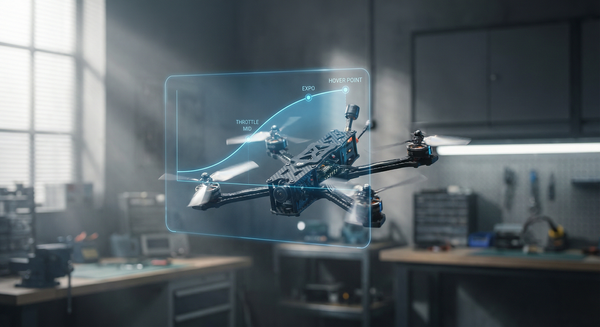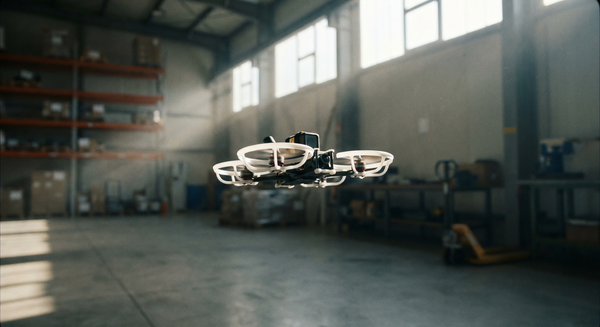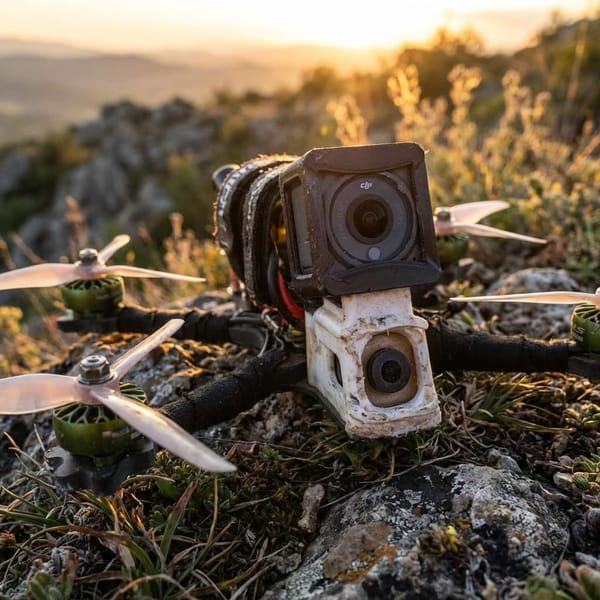Drones can be used for a wide range of applications but the use that is becoming increasingly popular is FPV Racing. This activity is transforming from one done by hard-core hobbyists in a isolated field or abandoned building to one that is accessible to anyone, of any age. But can FPV Racing go as far as, say, Formula One in terms of the money poured into the sport and the spectators that love it?
What is FPV Racing?
Before we go any further, let me explain what FPV Racing is and why it is attracting so many pilots. FPV stands for First-Person View and this means that the pilot sees live footage from the camera mounted on the drone. All FPV racers now wear a pair of goggles while flying with a screen built-in, and the live footage is transmitted on to this screen. This is why is it call First-Person View as it is though you are up in the air with your drone, flying it first-hand. If you are reading this article, I’m sure you can understand that this is one of the main attractions for the pilots; to fly first-hand… (almost).
The other attraction is, of course, the racing aspect of it. This part doesn’t take much explaining; a group of FPV racers get together (or are brought together) and they set up their drones/goggles and race. They race around a course that is usually set out with cones, obstacles, and lights.
What does this ‘sport’ have to offer?
For the Pilots…
For the pilots themselves, there are some clear incentives. First and foremost, you get to fly. The actual experience of flying your own drone is what draws most people to this activity. This emerging sport is not all about the racing and the skills you require to fly well however. Most of the pilots who now participate in FPV racing first got into drones because of the DIY aspect of them. You buy all the parts separately (usually after taking some time to consider what gear would be best for your needs) and you build your FPV drone yourself. This, of course, requires knowledge as well as skill to do. After completing your build, you then venture out and start flying your own self-built machine. In this sense, you could argue that FPV racing requires more skills of the pilot then the drivers of F1 as they have to both fly extremely well, and know how to fix their machines when they are broken.
More and more individuals and organisations are putting money into FPV racing and so there is now also a financial benefit for the pilots. Just this year, Dubai hosted the first World Drone Prix and offered over $1,000,000 in total price money – a huge sum of money for this fledgling sport. The track race winner of this event was a 15 year old teenager from the UK, Luke Bannister, who won $250,000 – not bad for a few hours work. See the video below for his final race.
For the Spectators…
As for any potential spectators of FPV racing, this is still a work in progress. The powers that be in FPV racing are trying their best to create a spectacle that will draw in the thousands of by-standers and the course set up in the World Drone Prix was pretty impressive… It may be true however that the live footage from the drones themselves is more worth watching than the actual race which is one of the main obstacles FPV racing needs to surmount.
One way the Drone Racing League is attempting to increase interest is through creating an almost reality TV affect, accentuating the drama of the race and creating stories around the pilots themselves. This approach has faced criticism from participants of the sport but I’m pretty sure that if it works and they get more funding as a result, they won’t mind so much.
So will this be a success?
It’s hard to say. There’s no doubt about it that drones, and especially drone racing, are increasingly popular. There are many kids under the age of 15 that either want a drone or already fly a drone to an expert level. I therefore believe that there will not be any shortage of drone pilots but the questions remains is whether people will want to watch FPV races. I guess we will just have to wait and see…
See the video below for a short film on this topic of FPV racing as an emerging sport.







